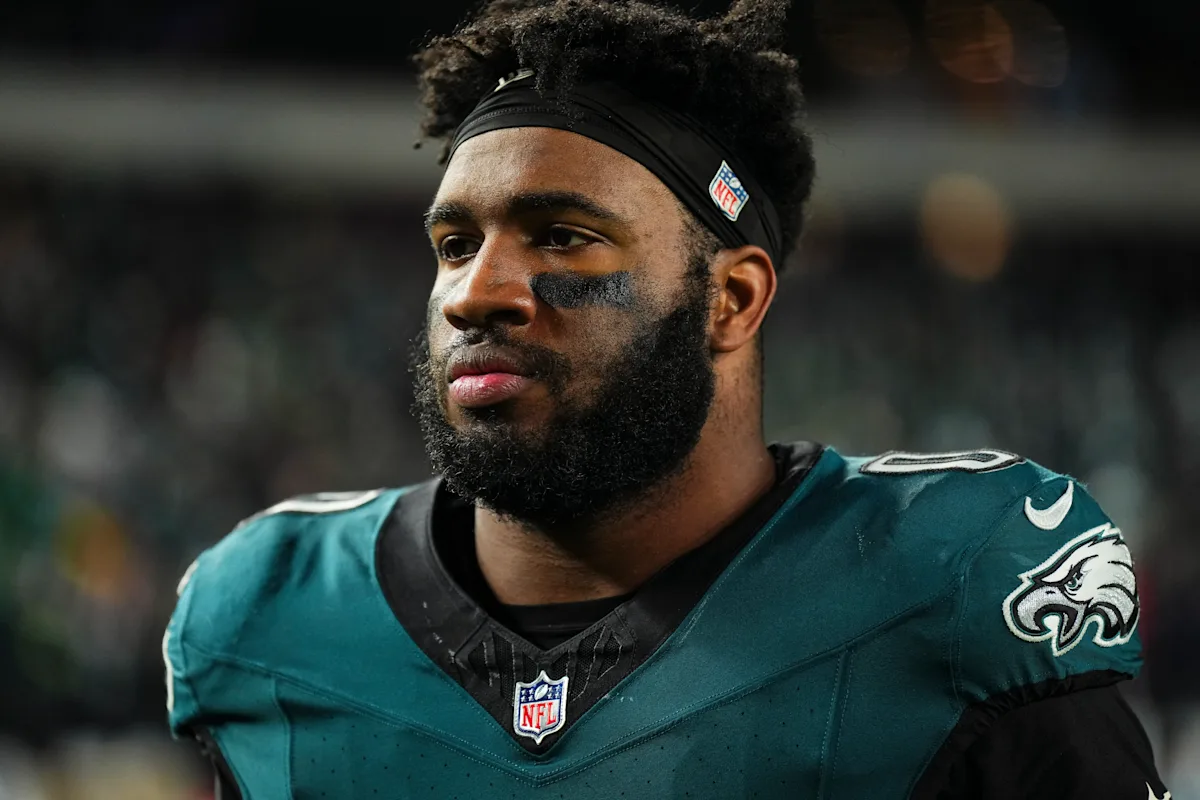Former agent examines the tremendous leverage Lamar Jackson has in Ravens’ contract talks
The contract negotiations between Lamar Jackson and the Baltimore Ravens have been a hot topic in the NFL world for months, capturing the attention of fans, analysts, and insiders alike. As the reigning NFL MVP and one of the most electrifying talents in the league, Jackson’s potential contract not only affects his financial future but also the Ravens’ trajectory as a franchise. To fully understand why Lamar Jackson holds tremendous leverage in these talks, it helps to view the situation through the lens of a former NFL agent who has negotiated numerous high-profile deals. The leverage stems from several key factors: his unique skill set, his MVP status, market dynamics, team needs, and broader NFL economics.
Lamar Jackson is a once-in-a-generation talent. His rare blend of speed, agility, arm strength, and football IQ allows him to be a dual-threat quarterback in a league increasingly favoring mobile QBs. Unlike many quarterbacks who fit into one mold—either a pocket passer or a run-first player—Jackson excels at both passing and rushing, leading the NFL in rushing yards for a quarterback in his MVP season and setting records in the process.
From an agent’s standpoint, this uniqueness translates to leverage because Jackson is not just a quarterback; he is an offensive focal point who reshapes defenses with his athleticism. The Ravens’ offensive system is built around his skill set, meaning his value to the team goes far beyond traditional quarterback metrics.
This level of versatility and impact creates a scarcity effect in the quarterback market. Teams don’t often get players who can change the entire dynamic of a game like Jackson. In negotiation terms, scarcity equates to leverage. When a player has a rare skill set that few others can replicate, their bargaining power increases exponentially.
Winning the NFL Most Valuable Player award is a game-changer for any player’s contract talks. It provides objective evidence that the player is among the elite, commanding top-tier compensation. Lamar Jackson’s MVP status not only solidifies his place among the league’s best but also justifies the Ravens investing heavily to retain him.
For agents, an MVP award is a strong bargaining chip because it shifts public and front-office perception. It moves the conversation from “potential” or “upside” to “proven elite.” It signals that Jackson is worth the investment to be the face of the franchise and a key piece in pursuing championships.
In negotiations, agents leverage MVP status to demand contracts that reflect the player’s elite standing, often comparing their client’s worth to other MVP-caliber QBs. For Jackson, this means asking for a contract comparable to or exceeding what other MVP QBs have received, reinforcing his leverage in talks.
Another critical factor is the quarterback market itself. Quarterbacks are the most valuable commodity in the NFL, and their contracts have ballooned in recent years. When analyzing leverage, an experienced agent looks at recent contracts signed by comparable quarterbacks in terms of performance, age, and potential.
Jackson’s leverage is amplified because the Ravens are in a position where finding a comparable quarterback on the open market or via trade would be extremely difficult and costly. The quarterback market is tight, and acquiring a proven dual-threat QB like Jackson — especially one who is already acclimated to the Ravens’ system — is nearly impossible without paying a premium.
Recent quarterback deals set a benchmark that serves as a reference point for negotiations. Jackson’s camp can point to contracts of other young, elite QBs such as Patrick Mahomes, Josh Allen, and Justin Herbert, all of whom signed lucrative extensions with significant guaranteed money. These benchmarks create upward pressure on the Ravens to meet or exceed those terms to retain Jackson
The Ravens have invested heavily in building around Lamar Jackson, from their offensive scheme to personnel decisions. This organizational commitment creates urgency for the Ravens to keep Jackson happy and under contract long-term.
From an agent’s perspective, a team’s desperation to retain a player strengthens the player’s leverage. If the Ravens were content with a “bridge” quarterback or had a clear backup plan, their negotiating stance would be firmer. Instead, they have doubled down on Jackson, meaning they risk organizational disruption, fan dissatisfaction, and competitive setbacks if the contract talks stall or break down.
The team’s pressure to secure Jackson is a crucial piece of leverage for the player. The Ravens know that losing Jackson or having him play under a franchise tag or holdout scenario could be disastrous. This reality incentivizes the team to strike a deal favorable to Jackson to maintain stability.
The NFL salary cap environment also plays a pivotal role in contract leverage. Despite fluctuations caused by pandemic-related revenue changes, the league’s salary cap has generally been on an upward trajectory. This means teams have more money to spend on elite players, which increases Jackson’s leverage.
An experienced agent understands how to leverage salary cap growth projections to push for a higher contract value. The Ravens, facing a rising cap, must balance their spending on Jackson with other key players. But given Jackson’s importance, the team is motivated to allocate a significant portion of their cap space toward his contract.
Furthermore, the structure of NFL contracts allows agents to creatively negotiate guarantees, signing bonuses, and incentives that maximize a player’s earnings while managing team cap hits. Jackson’s agent can leverage this knowledge to design a deal that satisfies both parties but leans toward maximizing Jackson’s financial security and overall compensation.
Looking at other elite quarterbacks who negotiated contracts provides insight into Jackson’s leverage. Patrick Mahomes, for example, signed a historic 10-year deal worth up to $503 million, setting a new ceiling for QB contracts. Josh Allen and Justin Herbert, both young and highly productive QBs, signed extensions worth hundreds of millions as well.
Jackson’s camp can argue that his unique skill set, MVP pedigree, and the Ravens’ dependence on him justify a similar or even higher valuation. Moreover, Jackson’s rushing ability adds a dimension that these other quarterbacks do not consistently bring, potentially warranting a premium.
Additionally, Jackson’s age and potential for sustained excellence extend his value over the length of a long-term contract. From an agent’s perspective, locking in a young MVP quarterback with a dual-threat capability is an insurance policy that could pay dividends in wins and revenue for years, which bolsters his leverage.
No negotiation is one-sided, and every agent must acknowledge risk factors that can temper leverage. For Jackson, concerns about injury risk due to his rushing style, or questions about his consistency as a pure passer, provide counterpoints for the Ravens.
However, a savvy agent minimizes these negatives by highlighting Jackson’s durability to date and the evolving Ravens offense designed to protect him. Plus, the benefits of his elite playmaking outweigh the risks in the eyes of most NFL executives.
Ultimately, while risk factors exist, they don’t significantly erode Jackson’s leverage because the upside and impact he provides are so substantial.
Pulling all these threads together, it’s clear why Lamar Jackson has tremendous leverage in contract talks:
- Scarcity of Skill: His rare dual-threat ability makes him indispensable.
- Elite Performance: An MVP award confirms his elite status.
- Market Comparisons: Other young QBs set high compensation standards.
- Team Investment: The Ravens’ organizational commitment means they cannot afford to lose him.
- Salary Cap Dynamics: Rising cap space allows for bigger contracts.
- Long-Term Potential: His youth and talent project a long, productive career.
For the Ravens, losing Jackson or having a protracted holdout is a worst-case scenario, pushing them to the negotiating table with the understanding that Jackson can command a market-leading deal.
While the details remain confidential, it is reasonable to expect that Lamar Jackson’s new deal will be among the most lucrative in NFL history for a quarterback. The contract will likely include:
- A massive signing bonus to provide immediate guaranteed cash.
- High guaranteed money to protect Jackson financially.
- A record-setting average annual value (AAV) reflective of his MVP-caliber talent.
- Incentives tied to performance milestones to maximize earning potential.
- Contract structures to mitigate the Ravens’ cap hits while maximizing Jackson’s security.
From a former agent’s perspective, Lamar Jackson holds tremendous leverage in his contract talks with the Baltimore Ravens because he is a rare talent with proven elite performance, supported by a market that demands premium compensation for quarterbacks of his caliber. The Ravens have invested in a system built around him, and the NFL’s economic landscape further enhances his bargaining position.
Jackson’s leverage is a textbook example of how performance, market scarcity, organizational commitment, and economic realities combine to empower a player in contract negotiations. For the Ravens, securing Jackson with a long-term deal is essential for their championship aspirations, while for Jackson, maximizing his contract value reflects the marketplace demand for a transcendent quarterback in today’s NFL.
As negotiations continue, one thing is clear: Lamar Jackson is not just negotiating for money, he is negotiating for recognition of his immense value to the Ravens and the league at large.


